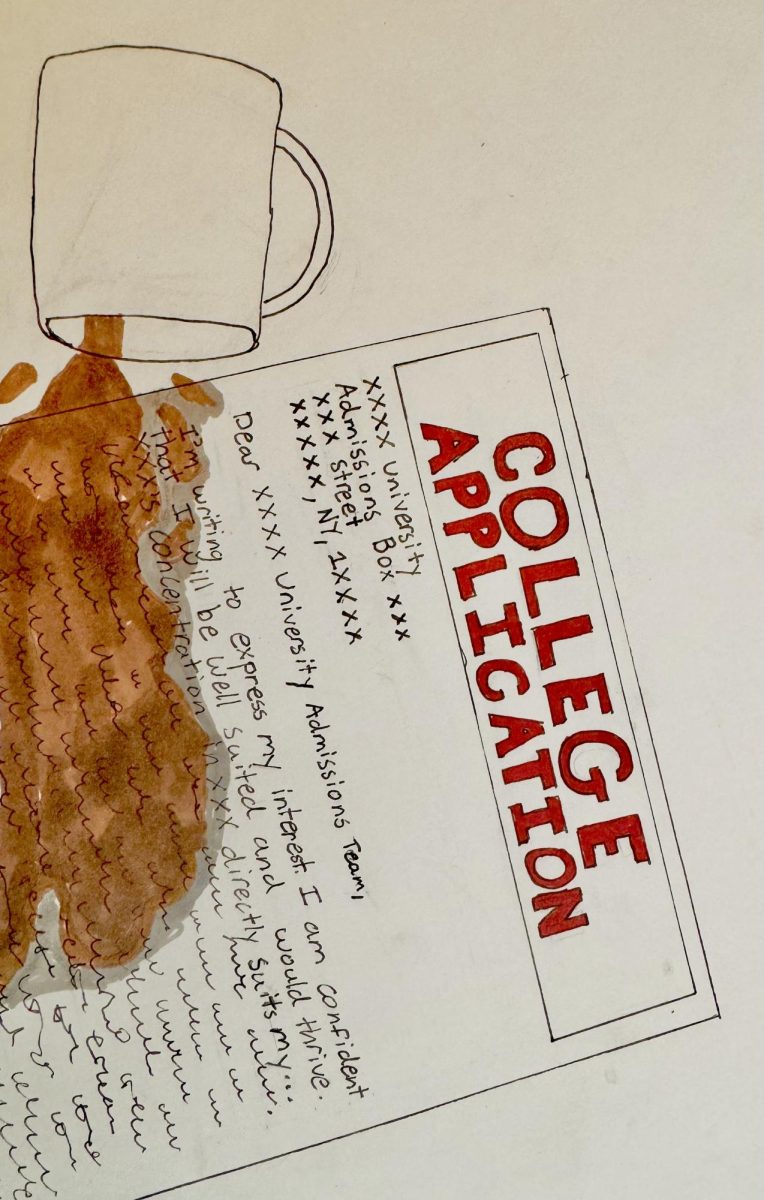In 2016, the year of his first presidential victory, I was about to graduate from elementary school. Now I’m in my final year of high school, and it almost seems like nothing’s changed.
Would the result have been any different with an endorsement of Kamala Harris from the Washington Post? Doubtful, but the silence that replaced the traditional avocation was deafening.
The Washington Post lost ten percent of its subscribers within a week of its announcement to not endorse a candidate this year, according to the Guardian. Similarly, dozens of its columnists quit and spoke out against the publication. But why was this move so controversial, and was it really worth it?
Although the editorial team had queued up an endorsement for the Harris-Walz ticket, it was at the last minute shot down by owner Jeff Bezos.
Bezos later published a letter claiming, “Presidential endorsements do nothing to tip the scales of an election. No undecided voters in Pennsylvania are going to say, ‘I’m going with Newspaper A’s endorsement.’ None. What presidential endorsements actually do is create a perception of bias. A perception of non-independence. Ending them is a principled decision, and it’s the right one,” So essentially, endorsements don’t affect real change, all they do is give the impression of bias. Let’s unpack that.
The idea that endorsements have no impact seems a little rude to the paper he bought a little over a decade ago. The paper, which employs around 2,500 journalists, is read by between two and three million people, and has been around for nearly a century, allegedly doesn’t carry any political impact. In one disingenuous defense, Bezos has managed to insult the core of the journalism industry- impact.
And as for the claim about bias: A newspaper’s job isn’t to publish unbiased pieces. Op-eds, letters-to-the-editor, columns and even restaurant reviews are all ‘biased.’ A paper that can express their opinion on one topic can express their opinion on any. It is an overt lie to claim that the endorsement is any more of a show of bias than the editorial they wrote criticizing Trump’s economic plan, the failures of the Secret Service, or any other politically charged position that a newspaper has the right to discuss.
The misconception is that papers need to be unbiased. But when you assume your reader can understand personal opinion, and when you clarify an article is just an opinion or editorial, objectivity isn’t a key issue. What does show bias, though, is the cherry-picking of which articles can and can’t be published, or the amplification of only certain writers’ perspectives and the suppression of any article (or endorsement) that might stir controversy.
Most readers, and many journalists employed by the Washington Post, see the backpedaling as a sign of Bezos’ fear of Trump’s potential retaliation. I would like to add the same defensive thinking that led to the decline of CNN cable viewing. Already confronted with a dwindling audience, newspapers are worried that by continuously posting left leaning articles, they alienate their right-wing supporters. What CNN and now the Washington Post failed to see was that there were incredibly few conservative viewers to alienate, and the result was only a net loss of subscribers.
The Associated Press was another publication that didn’t endorse a candidate this year, but AP has never endorsed a candidate before — they don’t even publish opinions. That’s where they differ from the Washington Post or LA Times – consistency. AP is unwavering in their unbiased approach.
Does an endorsement of a candidate sway a voter’s opinion any more than a New York Times recipe sways a cook, or a top 10 book list sways a reader? The issue isn’t the papers’ decision whether or not to contribute to political discourse, it’s drawing arbitrary lines on what they can write for the sake of shielding the owner from potential backlash.
Nothing does more to weaken the reputation of journalists than an obvious money grab. Too scared to risk losing a little bit of capital, Bezos sacrificed a sizable amount of the paper’s dignity and ethical standing. It’s selfishness, and it’s cowardice. More than that, it raises some questions. How much control does Bezos have? Has he been pulling articles he doesn’t like for years now? Does the editor in chief, or the publisher, or the managing editor have any actual authority?
Let me pose one final question: Since when were newspapers — the beacon of truth, the voice of the people, the harbinger of tough pills to swallow– so scared?





